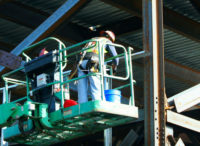Gas Pipelines
US DOT Proposes Rule to Improve Gas Distribution Line Safety

Catalyst for new rule was September 2018 series of explosions and fires in northern Massachusetts.
Photo courtesy of National Transportation Safety Board
The U.S. Dept. of Transportation has proposed a regulation that aims to increase safety for the more than two million miles of gas distribution pipelines in the U.S., as well as for the communities around them.
The proposed rule, which DOT’s Pipeline and Hazardous Materials Safety Administration (PHMSA) announced on Aug. 24, would carry out provisions of the Leonel Rondon Pipeline Safety Act, which is part of the 2020 Protecting our Infrastructure of Pipelines and Enhancing Safety (PIPES) Act.
The deadline for comments on the proposal is 60 days after it is published in the Federal Register.
Rule's Impetus: 2018 Explosions
In its regulatory notice, PHMSA said the “catalyst” for the rule was a Sept., 13, 2018, series of explosions and fires from an overpressurized natural gas distribution line in the Merrimack Valley area of Massachusetts.
The incident killed 18-year-old Leonel Rondon and sent more than 20 other people to the hospital.
Tristan Brown, PHMSA deputy administrator, said in a statement, "This proposal incorporates lessons from the 2018 Merrimack Valley tragedy to help ensure something like that never happens again."
The proposed regulation would require at least two types of overpressure protection for all "new, replaced, relocated or otherwise changed" district regulator stations. Examples of the protective equipment include relief valves, monitoring regulators or automatic shutoff valves.
The deadline for implementing that provision would be one year after a final version of the rule is published.
Other provisions include "enhanced" programs for managing distribution integrity; stronger record-keeping, planning and monitoring for construction and maintenance of gas distribution systems; and improved emergency response communication and coordination, according to PHMSA.
Gas Sector Comments
“We are reviewing this proposed rule and look forward to continuing our work with PHMSA to advance pipeline safety while ensuring that customers continue to receive safe, affordable and reliable energy," says Christina Sames, American Gas Association senior vice president of safety, operations and security.
Sames also noted that the natural gas industry has been working on ways to prevent overpressurization events.
Keith Holloway, a spokesman for the National Transportation Safety Board, said via email, "NTSB is reviewing the rule and may possibly submit comments at a later date if appropriate."
The safety board's recommendations in its 2019 report on the Massachusetts explosions and fires include having PHMSA require overpressure protections for low-pressure gas distribution systems "that cannot be defeated by a single operator error or equipment failure."
NTSB said in its report that the incident's probable cause was “weak engineering management” by operator Columbia Gas of Massachusetts.
In March 2020, Columbia Gas entered a guilty plea in federal district court to settle federal charges that it violated the Natural Gas Pipeline Safety Act.
The company also agreed to pay a criminal fine of $53 million, most of which went to the Justice Dept.'s Crime Victims Fund.
In October 2020, Nisource, Columbia Gas of Massachusetts' parent at the time of the explosions, completed a deal to sell the company to Eversource Energy.



